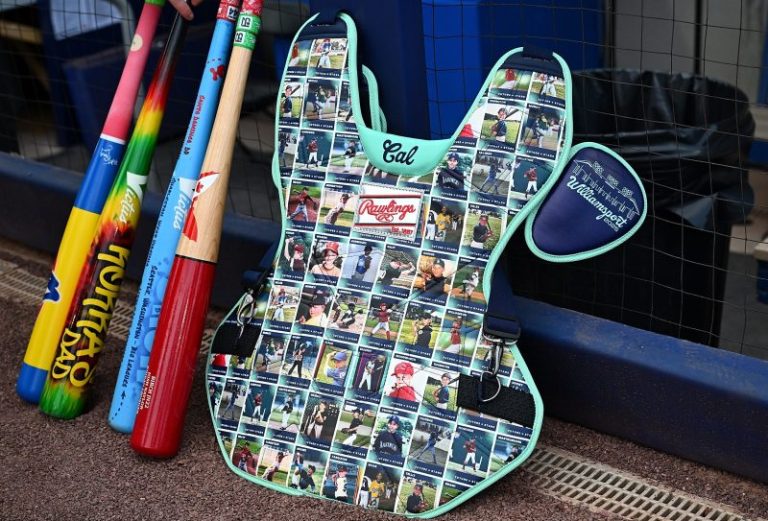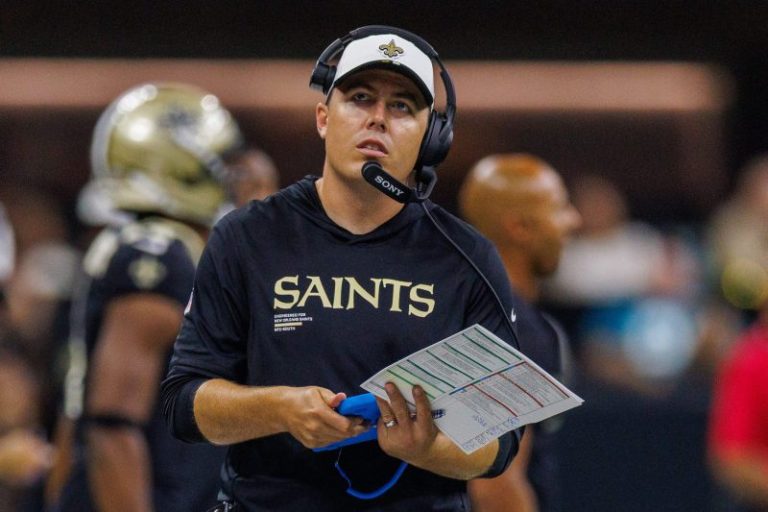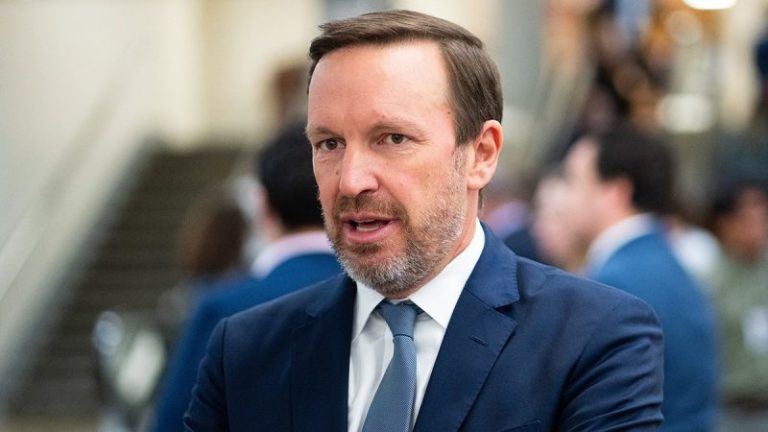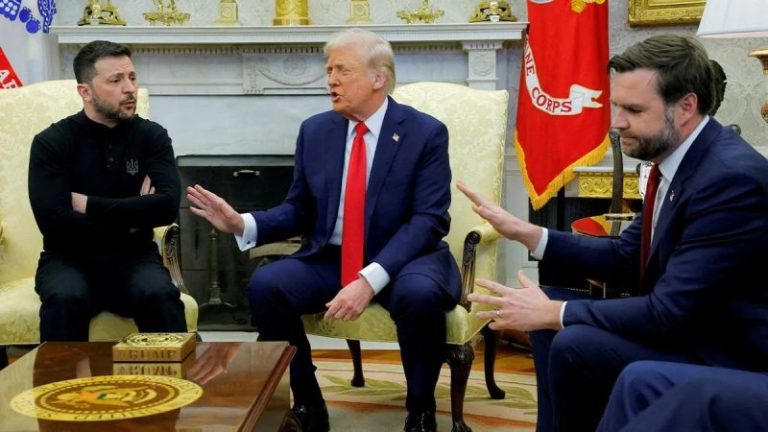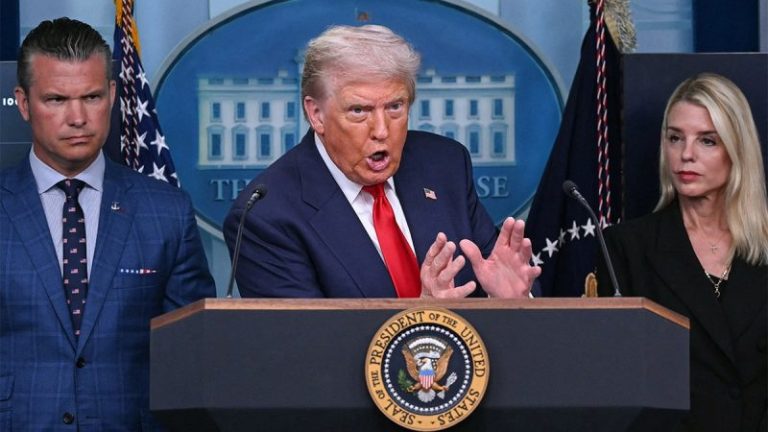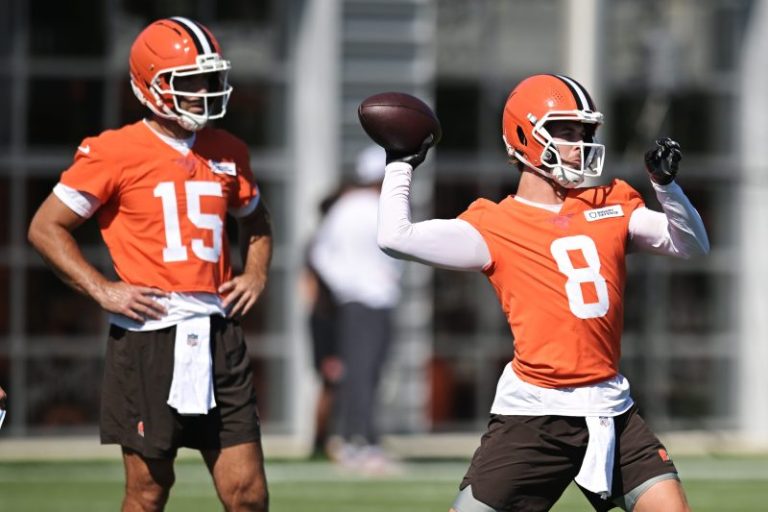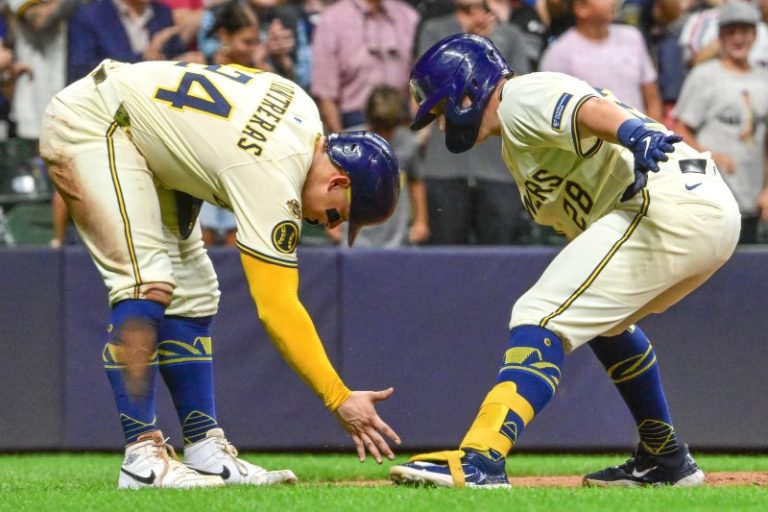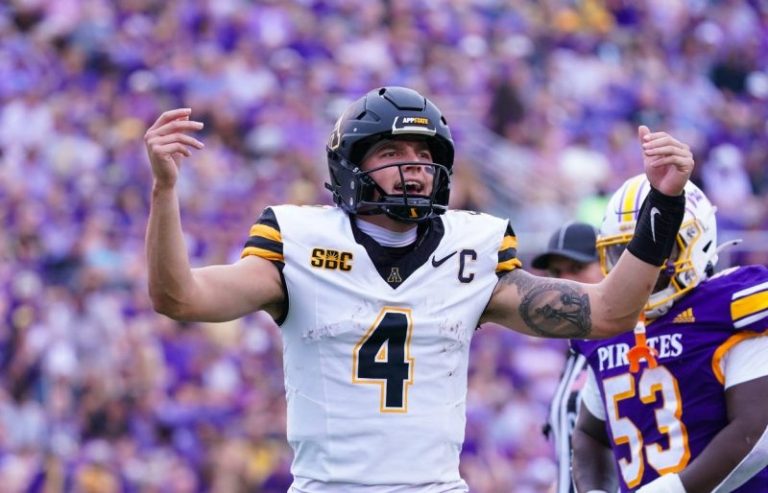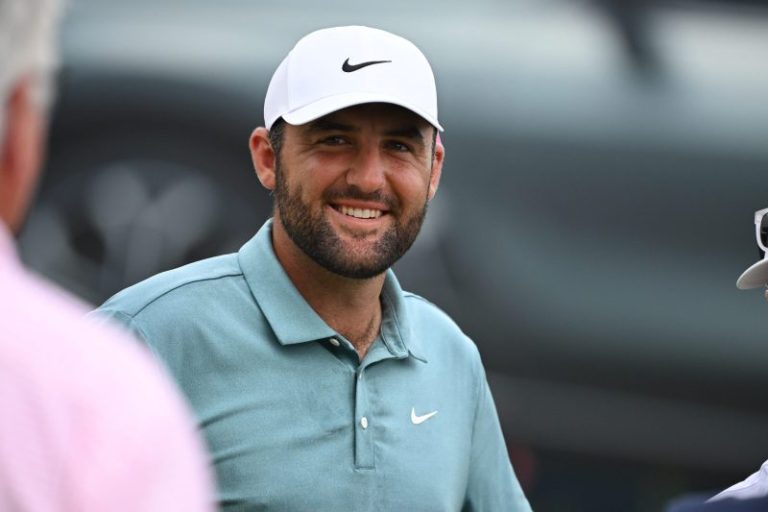Brewers didn’t make any big moves but won 14 games in a row after the trade deadline.
Mets and Yankees overhauled their bullpens but new additions have been a bust.
Cubs failed to upgrade and have completely fallen out of the NL Central race in recent weeks.
The frenzied MLB trade deadline, with 63 trades involving 179 players – including 50 trades in the last 31 hours – was supposed to be a magical elixir for playoff contenders trying to be the last ones still standing in November.
The New York Mets and New York Yankees were declared the overwhelming winners of the deadline, remember, grabbing three relievers apiece, that were going to be invaluable in the postseason.
The Milwaukee Brewers barely did a thing, and were ridiculed again for their lack of activity.
The Los Angeles Dodgers were going to be just fine even though they did nothing more than grab a middle reliever and an extra outfielder.
The Chicago Cubs’ offense, ranked first in the major leagues through the first three months, didn’t need to do anything major, right, believing they had the firepower to hold off the Brewers while adding an injury-prone pitcher who broke down after two innings,
And the Detroit Tigers, who had the best record in baseball at the All-Star break, could afford to sit this one out, picking up a couple of relievers and a veteran starter who cost them virtually nothing as they were going to cruise into the postseason.
Well, here we are, nearly three weeks since the July 31 deadline, and a whole lot of folks would love to have re-do’s.
You don’t think the Boston Red Sox wish they had coughed up one of their surplus outfielders to acquire Minnesota Twins ace Joe Ryan, making them as powerful as any team in the American League?
You don’t think David Stearns, Mets president of baseball operations, is having sleepless nights kicking himself for not getting a starting pitcher who could at least pitch six innings, or maybe have picked a few different relievers?
The Cubs, who are choking on the Brewers’ vapor trail, wish they had done something more than simply acquiring reliever Andrew Kittredge and injury-prone starter Mike Soroka without doing anything for their offense that ranks third-worst in baseball over the last month.
You don’t think the Dodgers are asking themselves why they didn’t steal at least a paragraph out of Padres chief A.J. Preller’s playbook and grabbed more than spare parts?
Oh, how just a few weeks have dramatically altered the way we view that trade deadline now:
Milwaukee Brewers
Has there ever been a team emulating Muhammad Ali’s rope-a-dope strategy than the Brewers?
These guys not only lost the first four games of the season, but were absolutely humiliated, outscored, 47-15. My god, they even had the Colorado Rockies and Chicago White Sox feeling sorry for them.
These days, well, they’re the best team in baseball – by a longshot – even though their trade deadline was an absolute snoozer.
The Brewers didn’t really do anything until the final minute, deciding that Diamondbacks closer Shelby Miller was too good of a bargain to pass up. They didn’t have to give up a single player, getting him only for hard cold cash: $2 million.
Well, since the trade deadline, the Brewers have lost only one a game, setting a franchise-record with 14 consecutive victories while going 29-4, boat-racing the Cubs and everyone else in the NL Central. They don’t have to worry about being bounced in the first round because they’ll be enjoying a first-round bye with a 7 ½-game lead for the NL’s best record.
Who knew that their June 13 trade with the White Sox for struggling first baseman Andrew Vaughn for starter Aaron Civale would turn out to deal of the year?
Vaughn has been a savior replacing injured first baseman Rhys Hoskins, hitting .343 with a 1.051 OPS and nine homers and 35 RBIs in his first 29 games.
So, yes, go ahead and make fun of the Brewers all you want, but they’re the ones who understood just what they had, refusing to break up their nucleus, and getting the last laugh.
Trade deadline grade: D
Midterm grade: A+
San Diego Padres
No one pushed their chips in more at the deadline than Preller, who was completely fearless, making five trades, involving 22 players. He has watched the newcomers turn a contender into one of the scariest teams in baseball.
The bullpen has been insane, yielding an MLB-best 2.05 ERA the past six weeks, including a 2.97 ERA for the season, and now has another lethal weapon in 102-mph reliever Mason Miller. It’s the best bullpen in the game.
The Padres’ offense has broken out, too, scoring 5.33 runs a game since the trade deadline after acquiring Ramon Laureano, Ryan O’Hearn and Freddy Fermin. Laureano has been one of the best pickups in baseball at the deadline, hitting .327 with a 1.032 OPS since his arrival.
Entering Saturday, the Padres were 23-12 since July 4 and for the first time since 2010, have had at least a share of first place in the month of August.
The last time the Padres won the NL West? Would you believe 2006 with Dodgers manager Dave Roberts batting leadoff for the Padres the final day of the season?
Trade deadline grade: A.
Midterm grade: A+
Philadelphia Phillies
The Phillies have the best starting rotation in baseball, though they’re now without ace Zack Wheeler who went on the IL Saturday with a blood clot in his pitching arm.
They have one of the most powerful offenses in baseball.
And they made sure they can also have one of the best closers in baseball, too, acquiring Jhoan Duran from the Minnesota Twins to go along with the signing of free agent David Robertson.
Duran, who had an injury scare when he was hit by a line drive Friday but is ok, has proceeded to be the first closer in Phillies’ history with three consecutive 1-2-3 saves.
He has given up only one hit in four appearances.
Trade deadline grade: A-
Midterm grade: A
Seattle Mariners
Yes, the Mariners decided this time around that it would be awfully stupid to squander another year of having a fabulous pitching staff, knowing that if they simply get into the postseason, they have as good as chance as anyone to run the table.
So, what do they do? Get some valuable offense with third baseman Eugenio Suarez and first baseman Josh Naylor. Neither one has yet to make a huge difference, but they certainly are threats, and the Mariners’ offense has picked up since the acquisitions.
They have gained seven games in the standings on the Houston Astros, and are establishing themselves as perhaps the team to beat in the American League, with visions of their first World Series dancing in their heads.
Trade deadline grade: A-
Midterm grade: B+
Houston Astros
The Astros, refusing to let third baseman Isaac Paredes’ injury derail their hopes for another AL West title, reached into their bank account and shelled out $70 million to bring back shortstop Carlos Correa and move him to third base.
They also acquired outfielder Jesus Sanchez from the Miami Marlins along with infielder Ramon Urias from the Baltimore Orioles. They nearly grabbed Padres starter Dylan Cease, too, until the asking price shifted towards the end of negotiations.
Correa appears rejuvenated now that he’s back home in Houston, and looks better defensively at third base than shortstop, scouts say. He’s badly needed if the Astros are going to stave off the sizzling Mariners.
The trouble is that just when everything was going smooth, All-Star closer Josh Hader went down, and he may not be getting back up unless the Astros make the postseason.
Trade deadline grade: B
Midterm grade: B
New York Yankees
This is a team that was cruising towards the AL East title on June 12 with a 42-25 record, leading the pack by 4 ½ games.
Now, here they are, hanging on for dear life in the wild-card race.
They are since 23-32 since their high-water mark, and have lost eight of 13 games since the trade deadline.
They acquired seven new players, including utility players Amed Rosario, Austin Slater and Jose Caballero who have since gone on the IL. They grabbed third baseman Ryan McMahon of the Colorado Rockies. They also acquired relievers David Bednar, Camilo Doval and Jake Bird.
Who would have imagined their new bullpen would self-destruct?
Trade deadline grade: A
Midterm grade: C-
Boston Red Sox
They had a chance to go for the gusto and acquire Twins ace Joe Ryan, but instead refused to push in their chips, acquiring only starter Dustin May and lefty Steven Matz from the Cardinals.
They badly could have used another starter, and a right-handed reliever, too, but passed.
This is a team that hasn’t had a winning record after the trade deadline since 2018, and must monitor ace Garrett Crochet. Crochet has already pitched 152 ⅓ innings this season, six innings more than his career high, with about eight more starts remaining. He has a career 5.26 ERA in the month of August.
Well, so far, so good, the Red Sox are 8-5 since the deadline and will be in the playoffs if the season ended today.
Trade deadline grade: D
Midterm grade: D+
Detroit Tigers
The Tigers had the best record in baseball at the All-Star break without a care in the world. They had clearly established themselves as the team to beat in the American League.
Well, they acquired seven pitchers but went the conservative route, refusing to part with any of their top prospects. They landed starters Chris Paddack, Charlie Morton and Randy Dobnak, along with relievers Kyle Finnegan, Paul Sewald, Rafael Montero and Codi Heuer.
Dobnak and Heuer were immediately sent to the minors and Sewald went on the 60-day IL. Finnegan was considered the only pitcher who could be play an integral role in the postseason with his 20 saves with the Nationals.
They also passed on landing an impact bat in Eugenio Suarez or Josh Naylor, who now are on the Mariners, a team they may have to deal with in the playoffs.
Morton, 41, will certainly give them innings in the regular season, but would he even be starting a playoff game?
Trade deadline trade: D
Midterm grade: D
Chicago Cubs
The Cubs, who had been running away with the NL Central, believed they would be just fine with a couple of minor moves, with GM Carter Hawkins saying they have to be just as concerned about the 2032 Cubs team as the current team.
So, how’s that working out with the Cubs scoring the third-fewest runs in baseball over the last month?
Let’s see, Seiya Suzuki, who had an MLB-leading 77 RBIs at the All-Star break, has since produced only nine.
Pete Crow Armstrong was hitting .073 (3-for-41) in August before producing three hits Friday.
Kyle Tucker is hitting .190 with one homer and four extra-base hits since July 1.
Their offense has been so putrid that until Saturday, they had gone a franchise-record 35 games without a comeback victory.
And the Cubs desperately needed a starter, but instead of grabbing one of the big fish like Sandy Alcantara of the Marlins or Mitch Keller of the Pirates, they chose Soroka, who lasted all of two innings before going back on the IL.
Remember, when former Cubs boss Theo Epstein uttered the phrase in 2016 after acquiring closer Aroldis Chapman at the trade deadline, “If not now, when?’
Well, apparently the answer is 2032.
Trade deadline grade: C-
Midterm grade: D
Los Angeles Dodgers
They put a lot of effort trying to acquire outfielder Steven Kwan from the Cleveland Guardians, only for him to stay put, and wound up only getting only reliever Brock Stewart (who’s already hurt) and outfielder Alex Call.
They had no way of knowing that third baseman Max Muncy would go down with a strained oblique, resorting to journeyman Buddy Kennedy, a career .193 hitter, off waivers, but they sure could have used a bat like Eugenio Suarez.
They just blew a nine-game division lead in 41 days, and were 13-21 since July 4 entering Saturday. In that stretch, the Dodgers’ bullpen pitched 135 of the 299 innings, yielding a 4.09 ERA. The Dodgers’ starting rotation has pitched an MLB-low 565 ⅔ innings – 133 innings less than the Phillies.
They have the cavalry returning with starters Blake Snell and Tyler Glasnow already back, and soon relievers Tanner Scott, Kirby Yates and Michael Kopech.
They have six weeks to get their pitching straightened out to avoid a living nightmare in October.
Trade deadline: C-
Midterm grade: D
New York Mets
Remember back in the days of June they were 45-24 with the best record in baseball, and had the best ERA (2.79) of any starting rotation in baseball with Kodai Senga, David Peterson, Clay Holmes and Griffin Canning?
Well, they have since gone 20-34, with only the Washington Nationals worse at 20-35.
That starting rotation has since pitched the fewest innings (227) in baseball, averaging 4.45 innings per start, with an ugly 5.35 ERA – ranking fourth-worst in MLB.
They have been so bad that they have lost 14 of their last 16 games, with their only two victories coming when they scored 12 and 13 runs.
They believed that their paper-thin starting rotation would be fine, with reinforcements from the minor leagues – Nolan McLean, Brandon Sproat and Jonah Tong – available to help if things went awry. So they passed up the chance to get any starters and bolstered their bullpen with the acquisitions of Ryan Helsley, Tyler Rogers and Brooks Raley.
The trio coughed up six runs in just 1 ⅔ innings Friday, and just like that, they blew a lead in their seventh consecutive game, losing six of them.
They are in trouble.
Maybe the bullpen will be fine in time, but their pitching is a mess – though McLean pitched 5⅓ scoreless innings in his MLB debut on Saturday
Trade deadline grade: A
Midterm grade: F
Texas Rangers
Rangers GM Chris Young refused to give up at the trade deadline despite their underachieving offensive, wanting to give future Hall of Fame manager Bruce Bochy one final shot if he indeed is going to mosey home after the season.
Well, while the offense finally has perked up, the Rangers’ moves to shore up the bullpen have been disastrous.
They acquired Phil Maton and Danny Coulombe at the deadline, and they’ve proceeded to throw gasoline on the fire. Coulombe, who had a 1.16 ERA with the Minnesota Twins, has a 6.35 ERA with the Rangers. Maton, who had a 2.35 ERA with the Cardinals, has a 7.36 ERA with the Rangers. They have a 6.41 ERA in the Rangers’ last eight games, and are directly responsible for three of the losses.
The Rangers’ postseason hopes are now on life support, losing eight of their last nine games.
Trade deadline grade: C
Midterm grade: F
Around the basepaths
– The worst-kept secret in the Arizona Diamondbacks organization is out: They will listen to offers on All-Star second baseman Ketel Marte this winter, knowing that while Marte is extremely talented, he can be a diva in the clubhouse, agitating his teammates and coaching staff. His detractors are still angry that he took a day off the final week of last season when they were fighting for their playoff lives. Though Marte’s house in Arizona was robbed the night of the All-Star Game, he took a vacation after the break, leaving the D-backs seething. The team put him on the restricted list and refused to pay him during his absence, and aired frustrations in a private meeting upon his return. Still, there was no discipline and he was back in the lineup the following day.
The D-backs won’t trade their three-time All-Star and NLCS MVP who has $92.5 million left on his contract after this season without getting fair value in return, but they’re also aware that he’ll become a 10-and-5 player early next season that gives him full no-trade rights.
Certainly, the phone lines will be open.
– Just six weeks after San Francisco Giants boss Buster Posey thought it was time to pick up manager Bob Melvin’s $4 million option, he now must decide in these next six weeks whether to fire him.
The Giants, who were all in when they jumped the deadline and acquired Rafael Devers and his remaining $232 million from the Boston Red Sox, have become baseball’s most underachieving team. They have gone 18-31 since the Devers trade, and entered Saturday having lost 14 of their last 15 home games – last accomplished in 1901.
Their performance, barring a dramatic turnaround, could cost Melvin his job.
San Francisco would become another potential destination spot for former Marlins manager Skip Schumaker, who will be the hottest free-agent managerial candidate this winter.
– The Mariners believed they were on the verge of acquiring Jhoan Duran until the Phillies swooped in and upped their offer to Minnesota.
– Now that the Pohlad family decided to hang onto the club after no one met their asking price of $1.7 billion, the baseball industry is curious to whether they’ll continue to dump payroll by trading starters Joe Ryan, Pablo Lopez and Bailey Ober this winter, further infuriating the fanbase.
– Just when you thought this could be Clayton Kershaw’s final year of a Hall of Fame career, he becomes the best pitcher on the Dodgers’ staff.
In his last three starts, he has pitched at least six innings while permitting one or no runs.
The last time he achieved the feat in four consecutive starts in a full season?
Aug. 12-Sept. 14, 2015, in seven consecutive starts.
– It’s a shame that the Padres and Dodgers, the best rivalry in baseball right now, won’t play another game against each other after next week in the regular season.
The Milwaukee Brewers and Chicago Cubs also don’t play against one another after this week.
– The Minnesota Twins are the New York Yankees’ version of a high school homecoming game.
The Yankees are 125-45 against the Twins since 2002.
That’s a .280 winning percentage for the Twins against the Yankees compared to a .515 winning percentage against everyone else.
– Dodgers All-Star catcher Will Smith, who’s hitting a league-leading .308, is bidding to become only the fifth catcher to win a batting title in MLB history.
Yet, his biggest obstacle may be getting enough plate appearances to qualify for the title, needing 502, while on pace for 500. If Smith falls short, he could still win the title but those plate appearances would count as hitless at-bats.
But as Dodgers manager Dave Roberts told the Los Angeles Times: “He’s going to qualify. No matter what, I’ll make sure of that. I’m going to make sure he gets enough at-bats.
– While Cal Raleigh of the Seattle Mariners is getting all the attention for catchers this season with his MLB-leading 46 homers, Kansas City Royals catcher Salvador Perez has quietly put together another marvelous season.
He just set a franchise record with his ninth season hitting at least 20 homers, and now has 293 in his career, third-most for a catcher with a single franchise, trailing only Hall of Famers Johnny Bench (389) and Yogi Berra (358).
– Since becoming the Padres GM in 2014, A.J. Preller has made at least one trade with every team except the Arizona Diamondbacks, and all but only three teams since 2020 – Colorado Rockies, St. Louis Cardinals and Diamondbacks.
– The Diamdondbacks, who saved $17 million in salary at the trade deadline, and have $70 million coming off the books after the season, are planning to cut payroll in 2026 after having a franchise-record $190 million payroll this season.
– The Colorado Rockies’ payroll for their active roster is just $41 million – which is $5 million less than Mets outfielder Juan Soto will earn this year with the Mets.
– If history repeats itself, the Red Sox could be in serious trouble making the postseason with seven games remaining against the Yankees.
The Red Sox are 5-14 at Fenway Park and 4-20 at Yankee Stadium in August and September since the 2019 season.
However, the Red Sox don’t play another first-place team against until the final week of the season.
– The 31st annual Oldtime Baseball Game, Aug. 20, in Cambridge, Mass., will honor Gus Quattlebaum, the Red Sox’s vice president of scouting, development and integration, who was diagnosed with primary multiple sclerosis in 2021.
– Hall of Famer John Smoltz echoed what fellow Hall of Fame catcher Ted Simmons has said for years.
Former Cardinals great Yadier Molina is the best defensive catcher either has seen and should easily be a first-ballot Hall of Famer. Molina won nine Gold Glove awards in his brilliant 19-year Cardinals’ career.
“The presentation (framing) at the plate, I would argue that he was the best all time,” Smoltz said on a FOX broadcast. “The one thing you knew, first of all, he could watch film forever. He was totally prepared. Every pitch was pretty much called with a purpose. He understood the game and watched hitters, understood hitting, and he exposed it. He was the threat. You talk about a (defensive back) in football where he takes away the left side of the field for a quarterback. Quarterback won’t even look over there.
“He took away the running game. He sat behind the plate with a presence that affected the other team and their strategy. There were things that other teams knew they couldn’t do when they came to play the St. Louis Cardinals.”
– The Tampa Bay Rays have yet to approach Rays All-Star infielder Junior Caminero about a long-term contract extension, but the price continues to rise. Caminero, the youngest Rays player to hit 30 homers in a season, will definitely seek in excess of Red Sox outfielder Roman Anthony’s $130 million recent contract extension.
– The Dodgers can only hope their offense doesn’t melt down with the absence of third baseman Max Muncy like earlier this season. The Dodgers averaged an MLB-low 3.5 runs a game, hitting .217 while going 10-15 in the 25 games Muncy missed.
– The Mets may stink these days, but their attendance has increased by 33.1% from a year ago, averaging 39,242 compared to 29,484 of a year ago, ranking fifth in MLB.
– Considering Blue Jays rookie reliever Mason Fluharty struck out three-time MVP Shohei Ohtani and induced a gamer-ending grounder by MVP Mookie Betts for his first career save, there’s no reason to believe he won’t be ready for big moments in October.
– Congratulations to Atlanta first baseman Matt Olson, who should play in his 746th consecutive game on Tuesday, passing Pete Rose for the fourth-longest consecutive game streak since 1969 behind Cal Ripken Jr. (2,632), Steve Garvey (1,207) and Miguel Tejada (1,152).
“You owe it to the team, the fans, your teammates, everybody,’ Olson told the Atlanta Journal Constitution. “They’re paying you this money to go out and play. If you’re able to do it, if you don’t feel bad, if it’s something you can play through, you go out and do it. Nobody is 100% except for the first week of spring training. You owe it to everybody to grind it out.”
Amen.
Follow Nightengale on X: @Bnightengale
This post appeared first on USA TODAY

